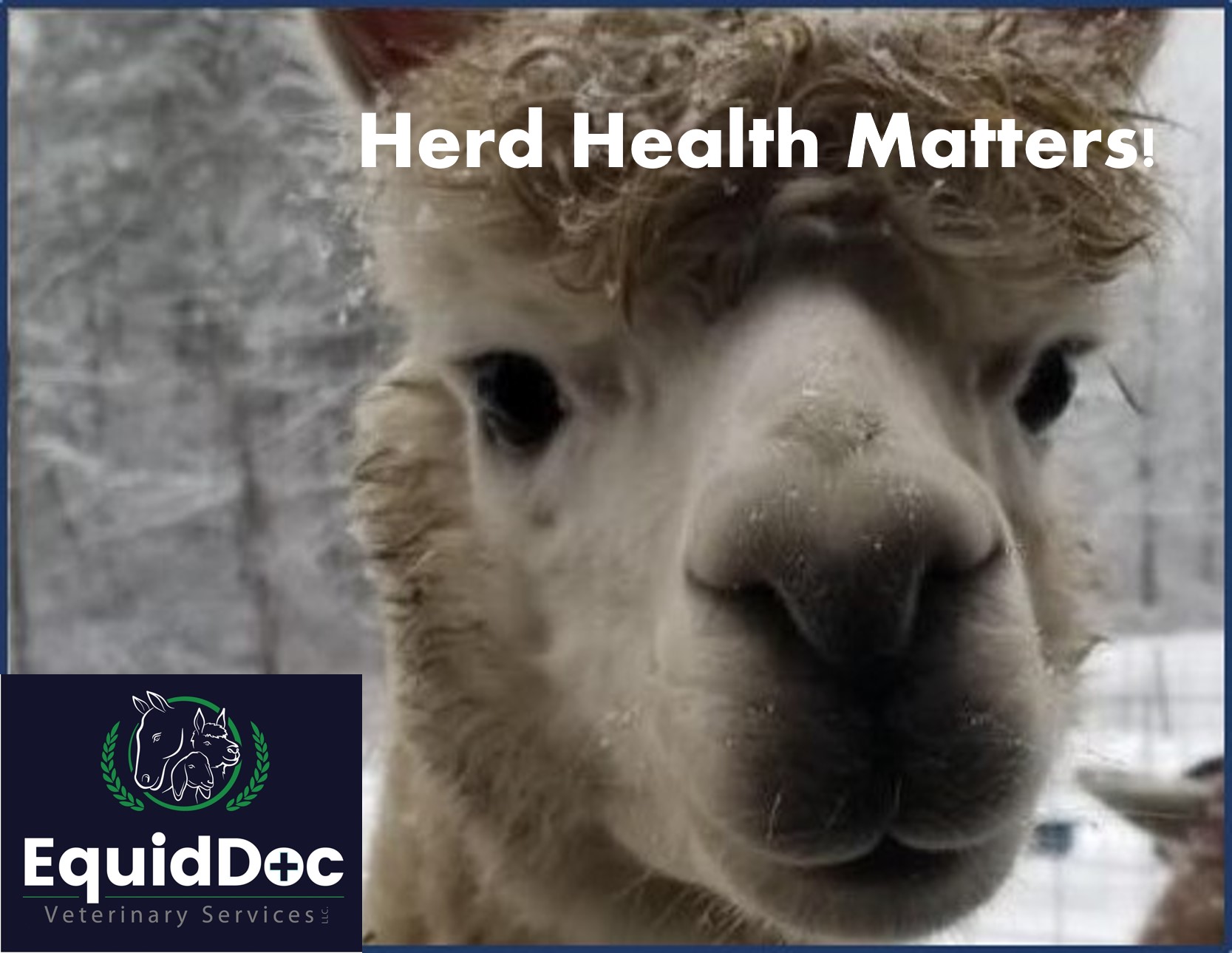Llama enthusiast? Alpaca breeder? Regardless of WHY you are interested in camelids, you should be aware of HOW to properly care for them. EquidDoc veterinarians are skilled in organizing herd health exams to help our clients learn everything from the fundamentals to advanced care to help prevent medical issues before they start. Specifically, we will help you identify and treat nutritional deficiencies, parasitic diseases, lameness, and foot diseases. Whether you have a few alpacas or a whole herd of them, we’re here to help! This blog will focus on what happens during a basic herd health exam on your farm.
Herd health exams typically coincide with annual vaccines; CDT (Clostridium perfringens type C + D and tetanus) and rabies. Once camelids receive their initial vaccines as youngsters, they should receive an annual booster of both vaccines thereafter. Before your veterinarian administers the vaccine, they will perform a brief health check that includes vitals, body condition scoring (BCS), and FAMACHA scoring will be completed.
BCS is based on a 1-9 numerical scale, with 1 being extremely emaciated and 9 being extremely obese. The goal is to strive for a 5! Poor body condition scores can be caused by things such as parasitism, nutritional deficiencies, dental abnormalities, the pecking order of the herd, or more serious systemic diseases.
FAMACHA scoring is a numerical color chart, that gives a value of 1 to 5 depending upon the color of the inner eyelid mucus membranes (0=very pink, 5=very pale). FAMACHA scoring assists in determining the anemia status of the patient; this, combined with BCS, and a vitals check can give your EquidDoc veterinarian a good sense of the overall health of the patient at that moment in time.
If both FAMACHA and BCS are poor, your veterinarian may request that a fecal test and/or blood work be performed. Quantitative fecal testing (fecal egg count) can help determine the parasite type and amount, which helps determine if deworming is necessary, and if so, helps determine the type of dewormer that should be used. A hematocrit and total protein level can confirm anemia and protein loss in the patient and a complete blood count, chemistry, and urinalysis are helpful to establish the health of your animal with a specific focus on infection, and kidney and liver health.
EquidDoc veterinarians can also help our camelid patients with breeding soundness exams, microchip insertions, castrations, dental health, and a wide array of emergencies, as needed. Curious to learn more to care for your camelid? Give us a call @ 508-885-4205 or email us at office@equiddocvet.com to set up your herd health consultation today!

